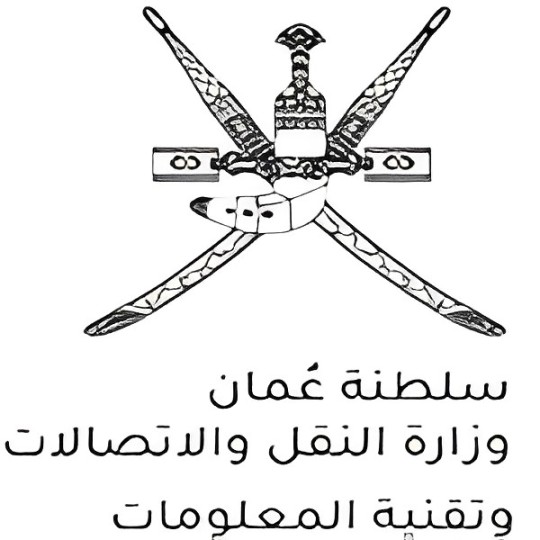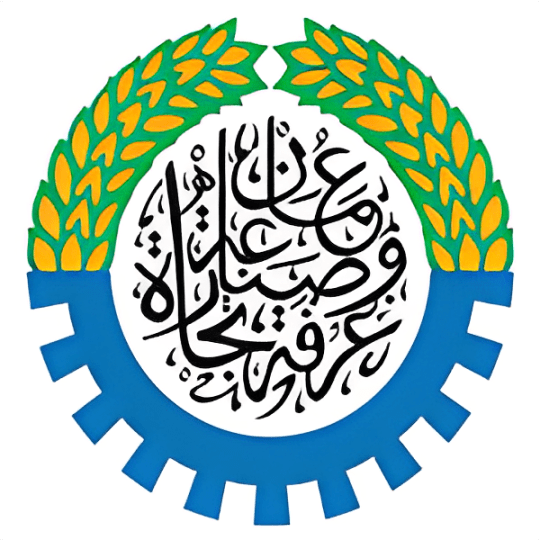+968 9596 3381
Phone Number
[email protected]
Email Address
Mon - Thu: 8:00 - 5:00
Online store always open
Phone Number
Email Address
Online store always open
WhatsApp Us Today
Drop Us an Email Today
Google Map Location
Saturday to Thursday

In an increasingly interconnected global economy, businesses and individuals frequently engage in activities that span national borders. This often leads to a complex challenge: the risk of double taxation, where the same income is taxed in two different countries. To mitigate this, governments worldwide enter into Double Taxation Agreements (DTAs), also known as Double Taxation Treaties (DTTs).
The Sultanate of Oman, committed to fostering an attractive environment for foreign investment and trade as part of Oman Vision 2040, has actively pursued and established a robust network of Double Taxation Agreements. These treaties are vital instruments that provide clarity, reduce tax burdens, and facilitate seamless cross-border economic activities. For any business considering company formation in Oman or individuals looking to invest or work in the Sultanate, understanding Oman’s DTA network is crucial.
This comprehensive guide will explain what Oman’s DTAs are, their key provisions, the benefits they offer, and how to leverage them effectively. Setup in Oman serves as your strategic partner, offering the foundational services and connections to tax advisory experts to ensure your cross-border operations are tax-efficient and fully compliant.
A Double Taxation Agreement is a bilateral treaty between two countries to avoid taxing the same income twice. It clarifies which country has taxing rights over specific types of income such as:
Dividends
Interest
Royalties
Capital gains
Business profits
Income from employment or real estate
The aim is to prevent tax duplication, promote transparency, and encourage cross-border investments.
As of 2025, Oman has signed over 35 Double Taxation Agreements with countries including:
United Kingdom
India
France
Singapore
Italy
Germany
South Korea
Mauritius
Egypt
China
Pakistan
UAE
Switzerland
These treaties vary slightly by jurisdiction but generally align with the OECD Model Tax Convention.
Businesses operating in Oman or holding cross-border investments benefit from DTAs in several ways:
Reduced Withholding Tax Rates: Lower WHT on dividends, interest, and royalties
Tax Credit or Exemption: Claim tax relief in home country on income taxed in Oman
Permanent Establishment (PE) Clarification: Defines when foreign presence becomes taxable
Stable Legal Framework: Reduces legal uncertainty in international tax matters
Encouragement of Foreign Investment: Boosts investor confidence in Oman as a tax-friendly jurisdiction
Without a DTA, a company or individual might face tax in both countries:
Example: A UK-based company earns royalty income from an Omani company.
Oman may impose withholding tax on the royalties
The UK also taxes the same income as part of global earnings
A DTA limits or eliminates this duplication by either exempting the income in one country or allowing a tax credit in the home country.
Eliminate Double Taxation: The primary goal is to ensure that income earned by a resident of one country from a source in another country is not taxed twice.
Prevent Fiscal Evasion: DTAs often include provisions for the exchange of information between tax authorities, enhancing transparency and combating illegal tax practices.
Promote Trade and Investment: By reducing the tax burden and providing certainty, DTAs make cross-border trade and investment more attractive and predictable.
Fair Allocation of Taxing Rights: They establish clear rules for how different types of income (e.g., business profits, dividends, interest, royalties) are to be taxed by each country, based on internationally accepted principles.
Resolve Disputes: DTAs provide mechanisms, such as the Mutual Agreement Procedure (MAP), for resolving disputes that may arise between taxpayers and tax authorities regarding the interpretation or application of the treaty.
Most of Oman’s DTAs are based on the OECD Model Tax Convention, which provides a standardized framework for allocating taxing rights and preventing double taxation.
Oman views its network of Double Taxation Agreements as a strategic tool to enhance its global economic integration and attract foreign direct investment. The Sultanate has been proactive in signing new treaties and, as seen recently with the India DTAA amendment, updating existing ones to align with evolving international tax standards, including those related to Base Erosion and Profit Shifting (BEPS).
Oman’s DTA network is continuously expanding, covering a diverse range of countries across Asia, Europe, Africa, and North America. This broad coverage reflects Oman’s growing economic partnerships and its commitment to facilitating seamless cross-border business.
While each DTA has its unique nuances, most of Oman’s agreements share common articles and principles, derived from the OECD Model:
Persons Covered (Article 1): DTAs apply to “persons” who are residents of one or both of the Contracting States. This includes individuals, companies, and other bodies of persons.
Taxes Covered (Article 2): DTAs typically cover direct taxes on income and capital. In Oman’s case, this primarily refers to Corporate Income Tax and the recently introduced Personal Income Tax (effective 2028).
Tax Residency (Article 4): This crucial article defines who is considered a “resident” of a contracting state for treaty purposes. For individuals, “tie-breaker rules” (e.g., permanent home, centre of vital interests, habitual abode, nationality) are used to determine residency if an individual is a resident of both countries under their domestic laws. For companies, residency is usually based on the place of effective management or incorporation.
Permanent Establishment (PE) (Article 5):
A “Permanent Establishment” is a fixed place of business through which the business of an enterprise is wholly or partly carried on (e.g., a place of management, branch, office, factory, workshop, mine).
If a foreign company from a DTA country has a PE in Oman, its business profits attributable to that PE can be taxed in Oman. Without a PE, business profits are generally taxable only in the company’s country of residence.
DTAs often include specific thresholds for construction projects (e.g., a site lasting more than 6 months) to constitute a PE.
Income Articles & Reduced Withholding Tax (WHT) Rates: DTAs specify how different categories of income are taxed. A key benefit is often the reduction or elimination of Withholding Tax (WHT) at source on:
Business Profits (Article 7): Generally taxable only in the country of residence of the enterprise, unless it carries on business through a PE in the other country.
Dividends (Article 10): Often subject to a reduced WHT rate (e.g., 0%, 5%, 10%) in the source country, especially for significant shareholdings (e.g., 10% or 25% ownership). Oman’s domestic WHT rate on dividends to non-residents is typically 10% for unlisted shares.
Interest (Article 11): Often subject to a reduced WHT rate (e.g., 0% or 5%) in the source country. Oman’s domestic WHT rate on interest to non-residents is typically 10%.
Royalties (Article 12): Often subject to a reduced WHT rate (e.g., 0% or 8%) in the source country. This covers payments for the use of intellectual property, trademarks, patents, software, and technical know-how. Oman’s domestic WHT rate on royalties is typically 10%.
Independent Personal Services (Article 14): Income derived by a resident of one state from professional services or other activities of an independent character is generally taxable only in that state, unless the individual has a fixed base regularly available to them in the other state, or stays beyond a certain period (e.g., 183 days).
Dependent Personal Services (Employment Income) (Article 15): Salaries, wages, and similar remuneration are generally taxable only in the state of residence, unless the employment is exercised in the other state. Even then, there are usually “183-day rules” and employer residency conditions that may exempt the income in the source state.
Capital Gains (Article 13): Gains from the alienation of property (e.g., shares, real estate) are often taxed only in the residence country, though gains from immovable property are typically taxed in the country where the property is located.
Methods for Elimination of Double Taxation (Article 23): DTAs specify how double taxation is actually relieved. Common methods include:
Exemption Method: Income taxed in the source country is entirely exempt from tax in the residence country.
Credit Method: The residence country allows a credit for the tax paid in the source country against its own tax on that income. Oman typically uses the credit method for its residents.
Non-Discrimination (Article 24): This clause ensures that nationals or enterprises of one contracting state are not subjected to more burdensome taxation in the other contracting state than nationals or enterprises of that other state in similar circumstances.
Mutual Agreement Procedure (MAP) (Article 25): Provides a mechanism for the competent authorities of the two contracting states to consult and resolve disputes concerning the interpretation or application of the DTA, or to eliminate double taxation in cases not provided for by the DTA.
Exchange of Information (EOI) (Article 26): Allows tax authorities to exchange information relevant for carrying out the provisions of the DTA or for the administration or enforcement of domestic tax laws concerning taxes covered by the DTA.
For companies and individuals engaged in cross-border activities involving Oman, DTAs offer significant advantages:
Reduced Tax Burden: The most direct benefit is the reduction or elimination of WHT on dividends, interest, and royalties, directly impacting cash flow and profitability for international transactions.
Enhanced Tax Certainty: Clear rules on taxing rights reduce ambiguity and potential disputes, making financial planning more predictable.
Protection Against Tax Evasion: The EOI provisions contribute to a fairer global tax system.
Competitive Advantage: Businesses operating under DTA benefits can offer more competitive pricing for services or products in the cross-border market.
Facilitation of Investment: Reduced tax barriers encourage foreign investment into Oman and outbound investment by Omani entities.
To claim benefits under an Oman DTA, the non-resident recipient of income (e.g., a foreign company receiving royalties from an Omani payer) typically needs to provide certain documentation to the Omani payer:
Certificate of Residency (COR): This is the most crucial document. It is issued by the tax authority of the non-resident’s country of residence, confirming their tax residency in that country for the relevant period.
Formal Request/Declaration: The non-resident may need to provide a formal declaration or request to the Omani payer, stating their intention to claim DTA benefits and citing the relevant DTA article.
Supporting Documents: Depending on the DTA and the type of income, additional documentation might be required (e.g., contracts, invoices).
The Omani payer (the entity making the payment to the non-resident) is responsible for applying the correct DTA-reduced WHT rate at the time of payment. They must obtain and retain all necessary documentation (especially the Certificate of Residency) to justify the reduced withholding, in case of an audit by the Oman Tax Authority (OTA). Failure to do so could result in the Omani payer being liable for the full domestic WHT rate, plus penalties.




Oman has signed and ratified DTAs with over 30 countries. This list is regularly updated, with new treaties being negotiated, signed, and entering into force. Key countries with whom Oman has DTAs in force include (but are not limited to):
Asia: India (recently amended), Pakistan, Singapore, South Korea, China, Japan, Malaysia, Thailand, Vietnam, Iran.
Europe: United Kingdom, France, Germany, Italy, Switzerland, Netherlands, Russia, Ireland (effective Jan 2025), Belgium, Croatia, Cyprus, Estonia (ratified by Oman, awaiting Estonia), Hungary, Luxembourg (ratified by Oman, awaiting Luxembourg), Moldova, Portugal, Spain, Slovakia, Turkey.
Middle East & Africa: Egypt, Jordan, Lebanon, Morocco, Qatar, Seychelles, South Africa, Sudan, Syria, Tunisia, Tanzania, UAE (no DTA, but GCC agreement exists for certain benefits).
Americas: Canada.
It is always advisable to refer to the official website of the Oman Tax Authority or consult a tax professional for the most current and comprehensive list of in-force DTAs and their specific provisions, as amendments and new treaties are periodically enacted.
Leveraging Oman’s Double Taxation Agreements requires a foundational understanding of both Omani tax law and international treaty provisions. Setup in Oman provides integral services that facilitate your ability to benefit from these agreements:
Company Formation: Establishing a legal entity in Oman is the first step towards engaging in cross-border business. Our Company Formation services ensure your Omani company is properly registered, allowing it to act as a qualifying payer or recipient under Oman’s DTA network, and providing the necessary legal standing to claim or apply treaty benefits.
Corporate Bank Account: “Managing cross-border financial flows, especially those subject to Withholding Tax, requires a robust banking setup. Our assistance in opening your corporate bank account in Oman ensures you have the proper channels to remit or receive payments, enabling accurate application of DTA-reduced WHT rates and maintaining transparent records for tax compliance.
PRO Services & Compliance Support: Navigating the documentation and procedural requirements for DTA benefits, particularly for Withholding Tax, can be complex. Our comprehensive PRO Services can assist with verifying DTA applicability, ensuring proper documentation (like Certificates of Residency) is collected and maintained, and acting as a liaison with the Oman Tax Authority for any DTA-related inquiries or clarifications.
Tax Advisory Referral: While Setup in Oman specializes in establishing your presence, we recognize that intricate DTA interpretations often require specialized tax expertise. We can connect you with our trusted network of licensed tax advisory firms in Oman who possess in-depth knowledge of international tax law and specific DTA provisions, offering tailored advice to maximize your tax efficiencies.
Investor Visa & Work Visa: For individuals who will establish tax residency in Oman, or for foreign professionals working for Omani entities, DTA provisions can significantly impact their personal tax liabilities on income sourced from DTA countries. Our Investor Visa and Work Visa services facilitate your legal residency in Oman, which is often a prerequisite for leveraging DTA benefits for individuals.
Interpreting Treaty Clauses: DTAs are legal documents, and their interpretation can be complex. Specific wording (e.g., concerning “beneficial ownership” for dividends/interest) can vary and requires careful analysis.
Obtaining Certificates of Residency: Securing timely and valid Certificates of Residency from foreign tax authorities can sometimes be a bureaucratic challenge.
Staying Updated: The DTA landscape is dynamic, with new treaties, protocols, and international guidelines (like BEPS MLI) continuously emerging. Regular monitoring is essential.
Substance Requirements: Increasingly, tax authorities scrutinize whether entities claiming DTA benefits have genuine economic substance in the treaty country, to prevent “treaty shopping.”
Domestic Law vs. Treaty: While DTAs generally prevail over domestic law, understanding the interplay is critical.
Best Practice: Always consult with qualified international tax professionals who have expertise in both Omani tax law and the specific DTA relevant to your cross-border activities.





Contact Setup in Oman today for a consultation and embark on a seamlessly integrated and tax-efficient journey in the Sultanate.
To benefit from a DTA, the taxpayer must:
Be a resident of the treaty country (e.g., UK, India)
Provide a valid Tax Residency Certificate (TRC) from their home tax authority
Submit the DTA application to the Oman Tax Authority before or during the transaction
Prove beneficial ownership of the income (especially for dividends or interest)
The Oman Tax Authority may reject DTA claims without proper documentation.
Step 1: Obtain a Tax Residency Certificate from your home country
Step 2: Submit the TRC and DTA claim to the Oman Tax Authority (OTA)
Step 3: Fill and file relevant OTA forms (typically during tax filing or payment withholding stage)
Step 4: Retain all related documentation (invoices, contracts, payment records) for verification
Step 5: If excess tax is withheld, apply for a refund with supporting evidence
Engaging a local tax consultant helps streamline this process.
DTAs typically include the following clauses:
Permanent Establishment: Defines what triggers taxable presence
Tie-breaker Rules: Used when dual residency issues arise
Mutual Agreement Procedure (MAP): For resolving tax disputes between countries
Exchange of Information: Enhances transparency and limits tax evasion
Non-Discrimination: Prevents unfair tax treatment of foreign nationals or companies
While the general structure is similar, rates and clauses may vary by country. For example:
Oman–India DTA: Royalties taxed at 10%
Oman–UK DTA: Royalties reduced to 5%, broader PE definitions
Oman–Mauritius DTA: Favors capital gains exemption under certain conditions
Always review the specific treaty applicable to your country of residence or operations.
To prevent abuse of DTAs (e.g., round-tripping, shell companies), Oman applies:
Substance requirements: Real operations must exist in treaty country
Beneficial ownership rules: The entity receiving the income must have control
Principal Purpose Test (PPT): OTA may deny treaty benefit if the main goal is tax avoidance
Setting up proper corporate structure and substance is essential to avoid rejection of DTA benefits.
Free zone companies in Oman can benefit from DTAs if they generate income subject to WHT. However:
Income earned within the zone (and not repatriated abroad) may not need DTA relief
If services are exported and taxed, DTAs help reduce foreign WHT on received payments
Consult with a tax advisor to confirm applicability on a case-by-case basis.
Currently, Oman does not impose personal income tax. However, DTAs still:
Provide certainty for expatriates on pensions, director fees, or foreign-sourced income
Help claim tax credits abroad on income taxed elsewhere
Reduce tax risks for remote workers and digital nomads
How many DTA treaties has Oman signed?
As of 2025, Oman has signed over 35 DTA treaties with countries across Asia, Europe, and Africa.
Does Oman apply withholding tax on dividends?
No, Oman currently does not impose withholding tax on dividend payments.
Can I claim tax relief under a DTA automatically?
No, you must submit documentation (TRC and forms) to the Oman Tax Authority to claim DTA benefits.
How long does it take to get DTA relief approved?
Processing times vary, but applying early during the transaction or tax year helps avoid delays.
Do DTAs apply to free zone companies?
Yes, if their income is taxed and repatriated across borders, they can benefit from treaty provisions.
Can individuals benefit from Oman’s DTAs?
Yes, especially expatriates earning passive income abroad or with complex residency situations.
Understanding Oman’s Double Taxation Agreements is essential for reducing tax exposure and improving profitability for both local and international companies. DTAs support legal tax minimization, boost investor confidence, and ensure smoother global operations.
Whether you’re structuring cross-border payments, setting up a business in Oman, or claiming refunds on excess tax, knowing your DTA rights is crucial.
Need help claiming DTA relief or structuring your Oman-based operations tax efficiently? Our tax specialists and legal advisors are here to assist.
Fill out our quick and easy contact form below. Briefly tell us about your vision and goals, and we’ll be in touch shortly to discuss a personalized plan for your success.
Al-Khuwair, Muscat, Sultanate of Oman